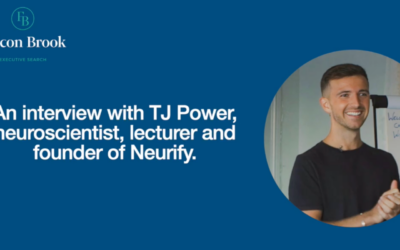The evidence of the power of female leadership is inescapable, from research demonstrating businesses with genuine gender diversity at senior level perform better, to the success of female leadership in the battle against Covid.
However, is it possible for one or even two women on a board to make a real difference to the diversity agenda?
This was a key theme when we caught up with Novera Khan, Uniper’s award-winning Chief Risk Officer.
Uniper continues to drive the diversity agenda. The company recently announced a 25 per cent target for high-level female executives by June 2022 from the current figure of 20 per cent. It has also joined Komm Mach Mint, a German-government initiative that promotes young women in mathematics, information technology, natural sciences and technology.
Novera’s perspective is that once women are in the right conversations, they can indeed help drive change, even if they remain in the minority.
“I think of making lemonade out of lemons,” Novera says. “We could be very bitter because there are still so few women in leadership. Or we can embrace the opportunity, understanding that this is a time when businesses want to do the right thing.”
The important point is to realise that a team that is not diverse will not make decisions in the same way that a diverse team can because they can’t see or feel the issues that affect diverse employees.
“Someone with daughters that are now at university age wants to engage in the conversation,” Novera continues. “They recognise that the world needs to change so their daughter can have the same opportunity as their son.”
Regulation works
Novera’s sense is that Covid and Black Lives Matter are leading policymakers to consider in earnest how diversity targets and regulation can bring about change.
“The law is the only stick that is universally understood,” she says. “Nobody debates why you can’t speed on highways. But it can be difficult from an emotional perspective. No woman wants to be told she was appointed because of her gender.”
Sustainability is an example of where government-led carbon reduction targets have been shown to drive businesses and markets to find solutions. “The conversation has changed permanently because it became part of the operational environment. All of a sudden there is a real possibility of a renewable, hydrogen and zero coal economy.”
Loading the career dice
Targets means businesses will be required to load the career dice in favour of diversity as a basic issue of law: “It resonates with me when people call it a human rights issue as opposed to a gender diversity issue. Women shouldn’t feel guilty,” Novera explained.
With ‘loaded dice’, more women reach more senior roles faster, creating critical mass.
“When you are the only senior woman in a room you feel like you need to represent every woman. Your voice becomes that mouthpiece. When you get two women in a room it changes the conversation. Women gain confidence and aspiration. They perform better and have a better chance of leading change.”
Disproportionate effort
‘Loading the dice’ also addresses the fact that getting to the top of organisations is still an unequal journey for many women.
“It’s taken a disproportionate effort and dedication if I compare, in my case, somebody of equal qualification, competence, experience and education. I had the feeling that I had to be the best in every room. I don’t want to propagate that women should push themselves to the limits to get to the top. Why should that be the expectation? It’s time to un-bias the room as much as we can.”
“Covid gave working women a chance to play to their strengths, such as resilience and the ability to juggle,” said Novera. “The crying kids during a Zoom call is a common situation for women. Maybe we can level the playing field MORE in the digital hallways.”
After all, women bring a host of management skills from their role as ‘home CEO’. “My mum would have all of the skills required to be a leader compared to many men. Women running homes, I mean, talk about running a chaotic organisation, right?”
There is no question diverse talent does exist, though many organisations say they struggle to create diverse candidate shortlists.
Our AVID Leaders programme unlocks the potential of diverse talent by measuring the size of the global talent pool so that we can share meaningful data on individuals relevant to our clients’ organisations. We help our clients enhance their teams through mentoring, coaching and research and setting achievable goals.
We are hosting a series of diversity events and webinars to share expert advice and guidance from our network of AVID Leaders – let us know if you’d like to take part.



